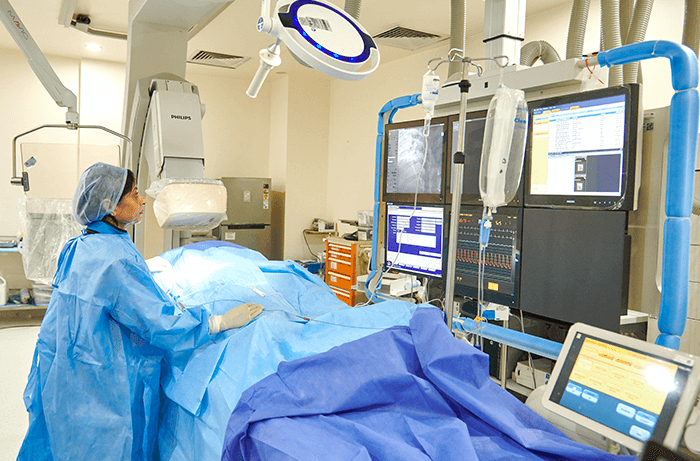×
Select Your Country
 International
International

×
Select Your Country
 International
International


A stroke is a medical emergency that happens when your brain's blood supply is cut off, depriving it of oxygen and nutrients and resulting in the death of brain cells, or when blood vessels within the brain burst, creating a brain haemorrhage. Brain stroke symptoms include the following:
Trouble in speaking
Confusion
Paralysis on one side of the body
Vision problems including blurred vision, blackened vision, double vision, etc.
Headache
Vomiting
Dizziness
Altered consciousness
Trouble in walking
Imbalance
Strokes can be categorized as two major types
Ischaemic stroke
Ischemia, which results in cell death in the brain tissue, is caused by the narrowing or blockage of blood arteries in the brain brought on by the accumulation of fatty deposits. Book an appointment at Manipal Hospitals for the best neuro treatment in India.
Haemorrhagic stroke
The blood vessels in the brain burst and bleed into the surrounding tissues due to:
Uncontrolled high blood pressure
High cholesterol
Uncontrolled high blood glucose levels
Cardiovascular diseases
Excessive use of anticoagulants or blood thinners
Aneurysm (Bulges at weak spots of the blood vessel)
Accidents or trauma
Cerebral amyloid angiopathy (Protein deposition in the blood vessels)
Ischaemic stroke leading to brain haemorrhage
An ischemic stroke that lasts less than five minutes is referred to as a transient ischemic stroke. A TIA increases the likelihood of having a stroke in the future.
Diagnostic tests for Brain stroke
Depending upon the symptoms, following diagnostic tests are recommended:
Physical exam: It includes checking of the heart beat and blood pressure.
Blood tests
Computerized tomography (CT) scan
Magnetic resonance imaging (MRI)
Stroke treatment entails rapidly restoring the brain's ideal blood flow and, if necessary, urgently extracting any major bleeding. to lessen the likelihood of future issues, such as paralysis, and to treat them.
Carotid ultrasound
Sound waves are used to screen for blood and plaque accumulation (fatty deposits) in the carotid arteries in your neck.
Cerebral angiogram
To obtain precise images of the arteries in the head and neck during X-ray imaging, a dye is injected into your carotid or vertebral artery.
Echocardiogram
The source of any heart clots that may have travelled to your brain and caused the stroke is discovered using sound waves to obtain comprehensive images of your heart. Visit our Brain Stroke Treatment Hospital in India today.